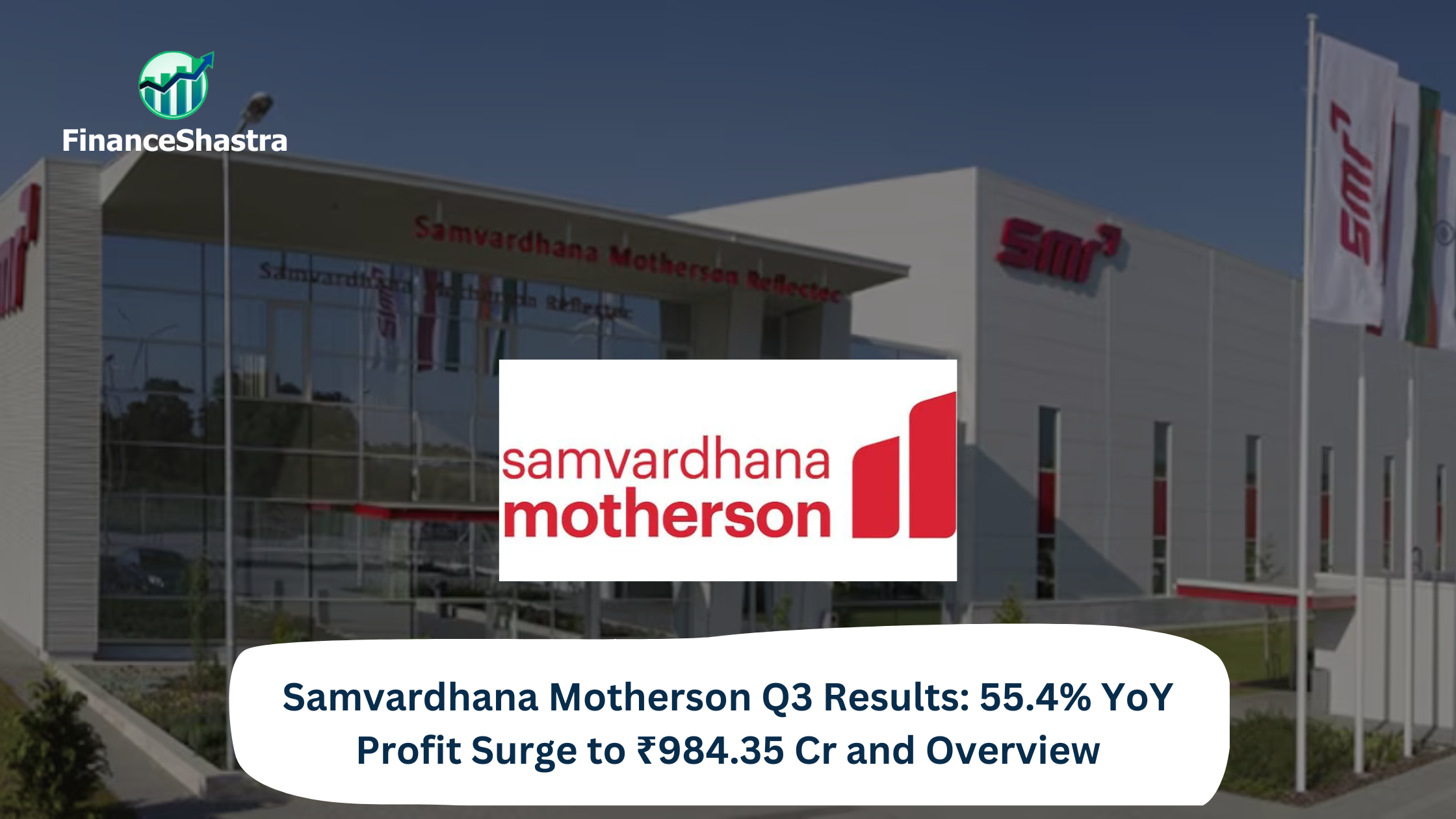Moody’s Warns: How Trump’s Tariffs Could Impact Motherson’s Growth and Stock Performance
Business and Industry Overview:
Samvardhana Motherson International Limited (SMIL) is an Indian company that makes and sells car parts. It started in 1986 and is based in Noida, India. The company supplies parts to car manufacturers in India and many other countries. It makes different products like wiring, mirrors, plastic parts, and metal parts. It also works with technology and software for cars.
Motherson is growing its business in other areas too. It has started making parts for airplanes. It also sells products in retail and services. The company has a habit of buying struggling businesses and making them better. It has bought many companies over the years and improved them.
Motherson has 270 factories in 41 countries. Most of its income comes from selling to big car brands like Mercedes-Benz, Audi, and Volkswagen. These brands trust Motherson for quality products. The company wants to grow even bigger. By 2025, it plans to be four times its current size. To do this, it is expanding into new industries like aerospace and healthcare.
The name “Motherson” comes from the founder and his mother. Later, the company joined with a Japanese firm called Sumitomo Wiring Systems. This partnership helped the company grow into a global business.
The automobile parts industry is very important for making cars. It includes companies that make parts like wires, mirrors, and metal pieces that car manufacturers need to build vehicles. As more people buy cars and new technology is added, the need for these parts increases.
In India, the car market is growing fast. More people are buying cars, especially motorcycles and two-wheelers. This has led to more demand for car parts, and India is now one of the biggest markets for car parts. Many companies in India are making car parts for both local and international car brands.
Even though electric cars are becoming more popular, regular cars with engines still make up most of the market. India is also producing many electric vehicles, which need new parts like batteries and special wiring. The industry is very competitive because many companies want to offer better quality and lower prices.
The industry faces some problems, like the rising cost of raw materials such as metals and plastics. Also, supply chain issues, such as delays in shipping or shortages of parts, can slow down production. Companies also have to keep up with new government rules about safety and pollution, which means they have to change their products.
But there are also good opportunities in the industry. Electric vehicles are creating more demand for new parts like batteries. Automation and new technology are helping companies make things faster and cheaper. Also, many companies are using eco-friendly materials to meet new environmental standards.
In India, the automobile parts industry is a big part of the economy. It creates jobs for millions of people and brings in a lot of money from exports. In 2023-24, India exported $21.2 billion worth of car parts. This number is expected to grow in the coming years. The industry continues to grow with strong demand for car parts both inside and outside of India.
Latest Stock News:
Samvardhana Motherson International Ltd is scheduled to hold an Investor Meeting on March 12, 2025, to discuss its financial performance, growth plans, and market trends. This meeting will provide valuable insights into the company’s future and business strategies. As a leading global manufacturer of automotive components, Samvardhana Motherson is committed to fostering transparency and strong relationships with stakeholders. The meeting will cover important topics like financial updates, market trends, and the company’s long-term growth outlook. Investors and analysts will also have the opportunity to interact with the management team and gain a deeper understanding of the company’s vision, operational strategies, and growth trajectory.
However, the company’s stock has been facing some challenges. As of 13:19 IST on the NSE, Samvardhana Motherson’s stock is quoting at Rs 117.27, down 4.58% on the day. The stock has dropped for five consecutive sessions and has eased around 17.05% in the last month. Over the past year, the stock has fallen by 1.62%, compared to a 0.67% increase in the NIFTY index and a 0.98% rise in the Nifty Auto index. The Nifty Auto index, which includes Samvardhana Motherson, has also seen a decline of around 8.74% in the last month.
In addition, the benchmark March futures contract for the stock is quoting at Rs 117.89, down 4.62% on the day. Despite these challenges, the stock’s PE ratio stands at 65.37, based on TTM earnings ending December 24. The volume of shares traded today stood at 208.61 lakh, compared to the daily average of 203.54 lakh shares over the last month. The NIFTY and Sensex indices are also down today, by 1.84% and 1.83%, respectively.
Potentials:
Samvardhana Motherson International Ltd is working on expanding its business and improving its products to meet the growing demand for advanced car parts. The company is focusing on making parts for electric cars, like batteries and wiring systems, which are important for future vehicles.
The company is also looking to grow in other areas, like aerospace and healthcare, to reduce its dependence on the car industry. This helps the company build long-term value for its investors. Samvardhana Motherson is also committed to being more environmentally friendly by using eco-friendly materials and processes in its products.
The company wants to keep strong relationships with its customers and continue to innovate. By investing in research and development, improving operations, and forming strong partnerships, Samvardhana Motherson plans to grow and stay ahead in the global market.
Recently, Samvardhana Motherson raised Rs 6,438 crore by selling shares to big investors. This money will help the company take advantage of new growth opportunities. The company’s Chief Financial Officer, Kunal Malani, said this funding will help the company expand even more. Many investors showed interest in buying the shares, showing confidence in the company’s future.
Analyst Insights:
- Market capitalisation: ₹ 85,041 Cr.
- Current Price: ₹ 121
- 52-Week High/Low: ₹ 217 / 110
- Stock P/E: 20.6
- Dividend Yield: 0.66 %
- Return on Capital Employed (ROCE): 13.7 %
- Return on Equity: 11.8 %
Motherson Sumi Systems has been doing well, with strong growth in sales and profits over the past few years. The company is a big player in the auto parts industry, especially in making parts for cars. It has good cash flow, which shows it can pay its bills and invest in growth. However, there are a few concerns. The promoters own less of the company now, and the stock price is higher compared to the company’s book value, which could mean it’s overpriced. Also, the time it takes for the company to collect money from customers has increased, which is a sign of some financial stress. Because of these mixed signals, it’s better to hold onto the stock for now rather than buy or sell.


